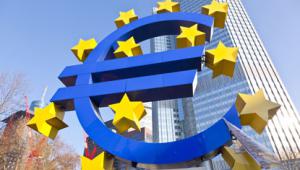The new data from Eurostat, the official statistical office of the European Union, indicates the pace of quarter-on-quarter GDP expansion across the currency bloc slowed to 0.3% in the three months to June, down from 0.6% in the first three months of the year. However, compared to the same period in 2015, output was 1.6% higher.
The data covers the three months to June, and therefore does not take into account the fallout of the UK’s vote to leave the EU. This has fuelled fears of further economic cooling in the second half of the year.
According to separate reports from Eurostat today, unemployment has fallen while inflation remains stubbornly low. Unemployment fell to 10.1% in June in the eurozone, but there was a large disparity between nations. For example, the rate stood at 4% in Malta and 4.2% in Germany, while in Greece it was 23.3%, and 19.9% in Spain.
The consumer prices index measure of inflation rose to 0.2% in July, due for the most part to upwards pressures on alcohol and tobacco prices, and also the services sector. These were large enough to counterbalance falls in energy prices.
The European Central Bank will welcome the rise in inflation to nearer the 2% target. However, the slackening rate of growth and the impact of the Brexit vote are likely to prompt the ECB to introduce more stimulus measures.
Responding to the figures, Danae Kyriakopoulou, managing economist of Cebr, an economics consultancy, said the ECB would be reluctant to cut interest rates even further, to avoid denting the profits of a still-fragile financial services sector.
What is more likely is a change to the eligibility rules governing the purchase of assets under the ECB’s quantitative easing scheme.
Kyriakopoulou said these improvements to the ECB’s delivery of QE would be welcome, and maintains the view that “monetary policy has largely reached its limits in terms of the support it can provide to the recovery… it needs to be complemented by non-monetary stimulus measures in order to succeed.”
She also referred to Wednesday’s recommendation by the European Commission to waive fines that could have been levied at Spain and Portugal for failing to make sufficient reforms to reduce their government deficits to below acceptable levels.
“Further flexibility, leniency, and initiative on other levers of economic policy, particularly among those economies that can afford it, will be key in ensuring a sustainable recovery for the Eurozone going forward.”













